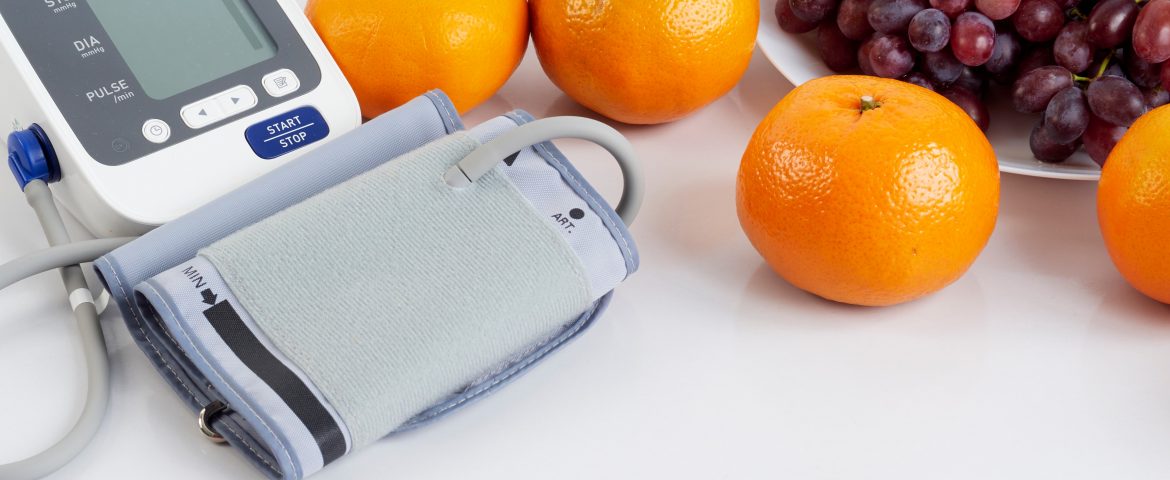High blood pressure (also called hypertension) is when your body has to use too much force to pump blood throughout your body. With high blood pressure, your heart must work harder to pump blood, which puts strain on your heart and blood vessels. Over time this can damage your tissue and lead to health issues like stroke, vision loss, heart attack and even heart failure.
Luckily for most, controlling blood pressure can be as simple as making a few lifestyle changes, starting with diet. There are a lot of factors that determine your risk for high blood pressure− things like age, activity level, family history, etc. But probably the easiest factor to control is your diet. Here are our tips for eating your way toward a healthier heart.
1. Reduce sodium.
High sodium intake is a major culprit behind rising blood pressure levels. The American Heart Association recommends limiting your daily sodium intake to 2,300 mg a day at maximum and recommends less than 1,500 mg per day if you have high blood pressure. But the diet of the average American is way too high in sodium according to health experts—about 3,400 mg of sodium per day on average. Prepackaged and processed foods are typically guilty of containing a lot of sodium, which is why cooking from scratch is a great way to control sodium levels and eat healthier. Use spices instead of salt to flavor your foods for delicious meals without the blood pressure consequences. When buying packaged food, check the labels for sodium content and opt for reduced or no salt added products when possible. Looking for recipes? Check out the American Heart Association’s healthy collection here.
2. Get more potassium.
While most Americans get too much sodium, they also get too little potassium. Along with being essential for healthy muscle function, potassium helps relax the walls of blood vessels and can lower your blood pressure. You should aim for 4,700 mg per day of potassium through potassium-rich foods like fruits, vegetables and beans. We often hear about bananas when we talk about dietary potassium, but broccoli, spinach and other leafy greens are also potassium-rich with lower carbs. Butternut squash and sweet potatoes are another rich source of potassium. Word to the wise: check with your doctor before you start taking potassium supplements, as too much potassium is bad for your kidneys and heart.
3. Cut back on alcohol.
It’s not clear why alcohol causes high blood pressure, but we do know that heavy drinking and binge drinking can result in hypertension. Binge drinking is defined as four or more drinks within two hours for women and five or more drinks within two hours for men. Heavy drinking is more than three drinks a day for women, four for men. Some studies have actually suggested a link between light to moderate drinking and a lower risk of hypertension—but heavy drinking and binge drinking are still linked with higher blood pressure. If you have high blood pressure and are a heavy drinker, cutting back to even moderate drinking can markedly lower your blood pressure.
4. Put down the coffee cup?
The jury is still out on whether caffeine consumption plays a role in high blood pressure. It can definitely cause a short but dramatic increase in blood pressure (which why many doctors advise you hold off on your morning cup before a blood pressure check), but the research is murky on the link between caffeine and hypertension. Some studies (like an Italian study from 1987) even suggest coffee could lower blood pressure. Recent research suggests regular coffee drinkers don’t see much of an effect on their blood pressure (most likely because their bodies are acclimated to caffeine) while those who consume it less regularly can experience a spike in blood pressure after an espresso-laden latte. It’s clear caffeine and blood pressure have a complex relationship, so the bottom line is if you’re trying to lower your blood pressure and have concerns about your caffeine intake, talk to your doctor.
A healthy diet (along with exercise) is often the easiest way to lower your blood pressure and maintain healthy levels. Eat plenty of fruits and veggies, cut back on sodium and alcohol and talk to your doctor about ways you can control your blood pressure through diet.


